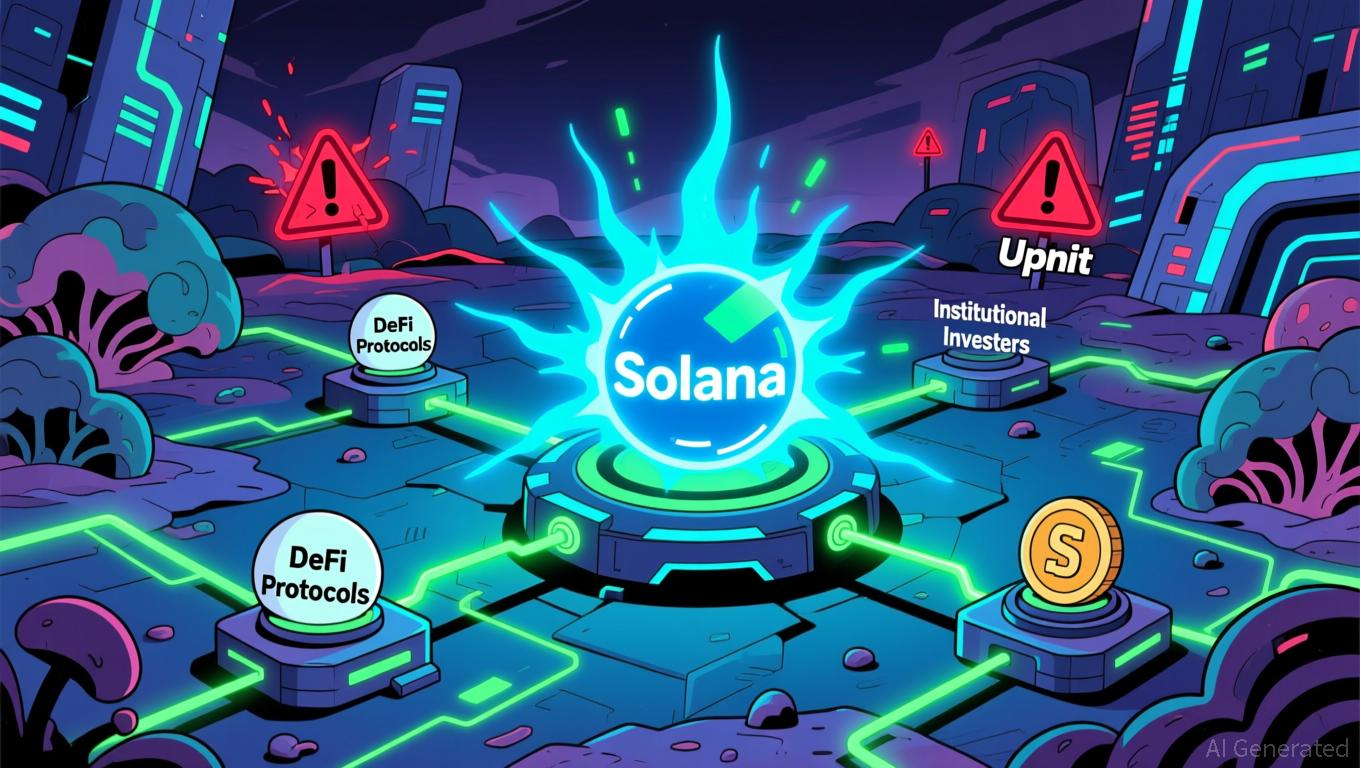Sniping or Tactics? Edel's Token Release Ignites Discussion on DeFi Equity
- Edel Finance-linked wallets allegedly bought 30% of EDEL tokens via bot-driven "sniping" tactics, sparking DeFi fairness concerns. - The $11M acquisition involved 160 wallets funded through Binance/MEXC, with half distributed to 100 secondary wallets linked to MEXC. - Despite co-founder's defense of the strategy, EDEL's market cap dropped 62% as governance transparency and tokenomics centralization drew criticism. - The incident highlights risks in rapid token launches and regulatory scrutiny amid growin
Wallets associated with Edel Finance have come under investigation after reportedly securing 30% of the EDEL token supply during its launch on November 12,
Bubblemaps revealed that these wallets received

The EDEL token, which supports a lending platform for tokenized stocks and real-world assets (RWAs), has seen its market value fall to $14.9 million,
The sniping controversy brings to light widespread concerns about how tokens are distributed in the crypto industry. While some believe that early adopters using bots are simply part of market behavior, others argue these strategies are unfair and manipulative. This discussion is especially relevant in DeFi, where decentralization is a fundamental value.
Edel’s co-founder has yet to elaborate on the token allocation process, leaving the community to speculate about the company’s motives. At the same time, the project’s tokenomics—featuring a total supply of 1 billion EDEL and a circulating supply of 1.4 million—point to significant centralization at launch
This dispute adds to a turbulent year for tokenized assets, both in terms of regulation and market activity. In October, Ondo Finance expanded its tokenized products to the
As the cryptocurrency sector evolves, incidents like this are likely to impact investor confidence and attract regulatory attention. For now, Edel Finance’s response to these issues and its commitment to transparency will be crucial in shaping its future within the DeFi landscape.
Disclaimer: The content of this article solely reflects the author's opinion and does not represent the platform in any capacity. This article is not intended to serve as a reference for making investment decisions.
You may also like
Privacy Altcoins Surge While Crypto Markets Decline
In Brief Cryptocurrency markets faced a major downturn in recent weeks. Privacy altcoins like Zcash rise amidst stricter regulation concerns. Upcoming regulations pose liquidity risks for privacy-focused cryptocurrencies.

Solana News Today: Institutions Remain Confident in Solana Amid Security Concerns and Volatile Prices
- Solana's on-chain trading volume now exceeds centralized exchanges, driven by $510M in ETF inflows and institutional adoption of DeFi protocols. - Price volatility and security breaches, including Upbit's $36.8M Solana-based theft, highlight risks despite $3B+ in corporate treasury holdings. - Institutional capital continues to flow into Solana's ecosystem, with DWF Labs committing $75M to scalable DeFi infrastructure amid TVL recovery to $120B. - Forward Industries reports $668M unrealized losses as Sol

XRP News Today: XRP ETFs See Rapid Growth, Price Remains Flat—Will Increased Inflows Overcome Technical Barriers?
- XRP ETFs saw $164M inflows on Nov. 24, 2025, with Grayscale and Franklin Templeton launching new products amid rising institutional interest. - Price rebounded to $2.20 but remains range-bound below key technical levels, forming descending patterns despite ETF-driven liquidity gains. - Ripple's RLUSD stablecoin surged 56% in 30-day volume to $3.5B, now third-largest GENIUS Act-compliant stablecoin after USDC and PYUSD. - Analysts predict $5.05 by 2025 and $26.50 by 2030, but XRP's 16.95% drop from 30-day

SEC Considers Blockchain Stock Advancements as Concerns Over Conventional Market Stability Persist
- SEC plans to discuss tokenized stock regulations with major firms like Coinbase and BlackRock , aiming to modernize securities rules for blockchain-based finance. - Proposed "innovation exemption" seeks to fast-track crypto products but risks destabilizing traditional markets by creating valuation gaps and eroding investor protections. - WFE warns tokenized shares could disrupt market structure, while Nasdaq proposes unified order books with shared CUSIP identifiers to align with existing systems. - Regu
